GERMANY OVERVIEW
Germany is not only a country with a long history but also a developed country and the economic, cultural and artistic center of Europe. Besides, German people always exude an elegant and hospitable look, making this place a favorite destination for international students and workers around the world. Here is an overview of Germany, let's find out with H&A!!!
Name: FEDERAL REPUBLIC OF GERMANY
Capital: Berlin
Population: 82.2 million (2015)
Area: 357,050 km² (61st place)
Main language: German
Geographical location: is a federal country located in Central Europe and shares borders with Denmark (to the north), Poland and the Czech Republic (to the east), Austria and Switzerland (to the south). , France, Luxembourg, Belgium and the Netherlands (to the west).
The Federal Republic of Germany is located in the heart of Europe with 16 states bordering 9 neighboring countries. Each state has its own unique cultural characteristics. The country has a temperate climate with four distinct seasons. When you come here, you can see the beautiful and dreamy scenes in the fairy tales of Europe.
Germany is a developed country and has the oldest traditional culture in Europe, from literature to music and especially a unique beer culture.
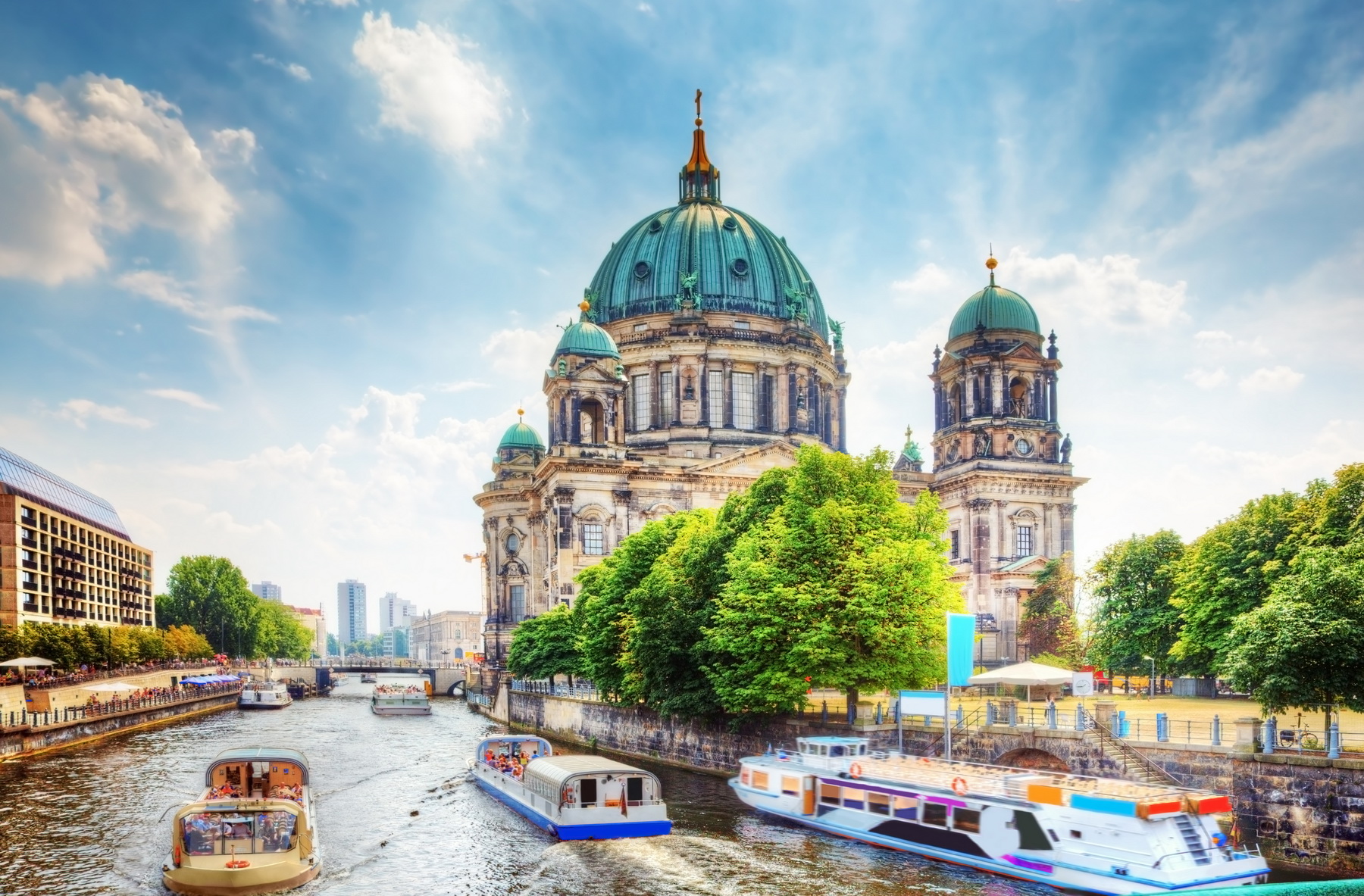
(Berlin capital city)
1. Economy
Germany does not have many natural resources, so its economy is mainly focused on industry and services. Most of Germany's area is used for agriculture, but only 2% - 3% of the German population works in this industry. With a gross domestic product (GDP) of more than 3,824 billion USD (2015)
Germany has a market economy, with a highly skilled workforce, large capital capital, low levels of corruption, and high levels of innovation. It is the third largest commodity exporter in the world, and has the largest national economy in Europe, ranking fourth in the world by nominal GDP and fifth by purchasing power parity.
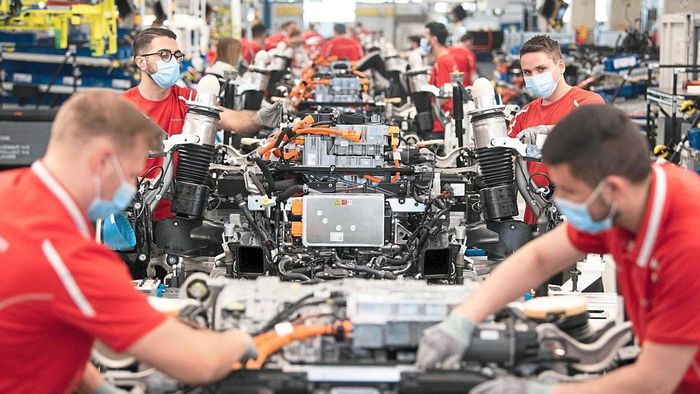
The service sector contributes about 71% to total GDP (including information technology), industry 28%, and agriculture 1%. The unemployment rate announced by Eurotat reached 4.7% in January 2015, which is the lowest level of all 28 member states of the European Union. At 7.1%, Germany also has the lowest youth unemployment rate among all 28 EU member states. According to the OECD, Germany is among the most productive countries in the world.
2. Education system
Germany is a country with a highly regarded and ranked education system in Europe. In the list of top 400 and top 700 schools in the world, the number of schools in Germany is very large, second only to the United States and the UK.
Studying in Germany, international students are completely free of tuition fees like all other students in Germany. Currently, there are more and more master courses in English at German schools. This is a measure to internationalize German education.
The university environment in Germany is very popular with international universities offering Bachelor and Master certificates, subjects taught entirely in English, an academic achievement assessment system that allows accumulation or transfer of credits. indicators and learning outcomes. General view of education Germany is a nation of ideas. The German government has innovated in education and research, internationalized higher education and increased research support.
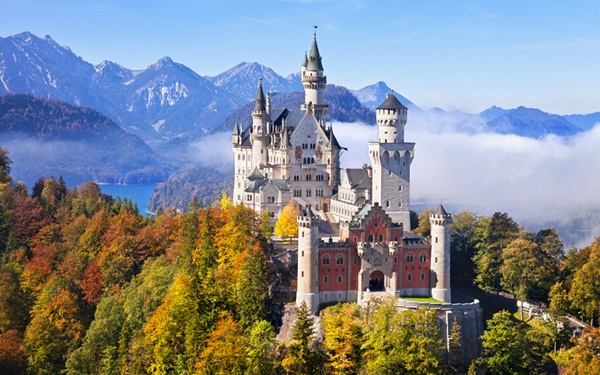
(Neuschwanstein Old Castle - Baravia, Germany)
Germany is increasingly becoming a country attracting international students to study, especially Vietnamese students. The fields of study are quite diverse from language sciences, media and culture sciences, law, economics, sociology to art, music, cinema, design to medicine, agriculture, forestry industry, financial management and nutrition. Germany is very strong in the field of technology, not only that the economic and financial sectors are also among the top in the world. Germany is ranked fourth in the world. The famous majors are engineering such as machine manufacturing, information technology, economic sectors such as banking and finance and corporate administration. Particularly in the natural sciences and engineering, the universities are general. strongly oriented to engineering disciplines have merged into the TU9 group. This is a group of leading German research schools with training programs in mathematics, informatics, natural sciences and engineering.
3. Life quality
According to the ranking of the World Happiness Report 2017 by the Sustainable Development Solutions Network, Germany is in the top 20 happiest countries in the world. International Living magazine recently ranked Germany as the 4th country in the world with the best quality of life.

The quality of health insurance, high average wages, and quality of infrastructure are also important issues in Germany.
The magazine also assessed that in Germany the space for nature and sports lovers is also very spacious. People can walk around the vast national parks and there are also separate trails for professional sports people.
Besides, job opportunities are allowed by the state and create all conditions for international students to work part-time while studying in Germany.
4. Colloquial
The main language is German, which is spoken in all states, depending on the state, people use different ways of speaking and can even use French. Most of Germany's young and intellectual class speak English well.
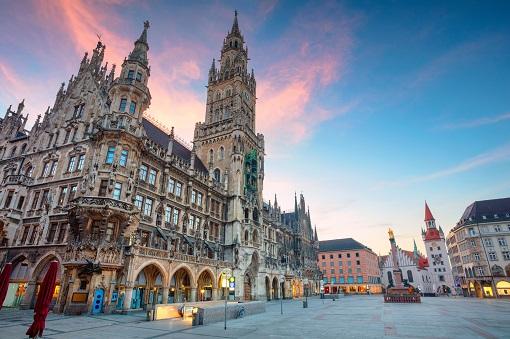
Germans have always been proud of their country's folklore and ethnicity, and now they are proud of the level of development and application of modern science and technology to life. It can be said in terms of science, technology and medicine, mechanics - electronics - automobiles that German products always have the best quality and durability, as well as the world's leading hospitals are places for treatment. for many extraordinary cases of critical illness.
5. Culture
Germany is a country with the oldest and richest traditional culture in Europe. First of all, “Reading culture” is a characteristic of Germany, with many book fairs all year round, German libraries are always great places for those in need of research.

A center of classical music with many famous musicians, this is the land of Goeth and Beethoven. That is why in Germany often concerts or music festivals are held regularly, although there are many Techno-vibration programs Berlin and rock festivals are performed every year, but besides that, there are still shows. Art shows and classical concerts are held in major theatres.
In terms of history and art, Germany still has many monuments, museums about war as well as art, all of which are open to the public. Germany is also very strong in sports, especially football.
6. Cuisine – Travel
As a European country, the culinary style of Germany is boldly Western. This is reflected in the traditional dishes – most famously the sausages – and the beer drink. Like other European countries, German dishes are made from meats – mainly pork, beef, chicken, goose, etc., breads from wheat, barley, and potatoes. The menu has a lot of protein and fat, breakfast necessarily includes milk and meat, bread. Dubbed the paradise of beer and sausages, you will be delighted to go to the beer hall with countless different beers. Enjoying the taste of hundreds of sausages is also a very interesting thing.

As the largest city in Germany, which witnessed many important events in modern world history, Berlin has many historical monuments, wars as well as old European-style architecture, many urban areas. museums, churches and attractions for everyone coming to Germany.
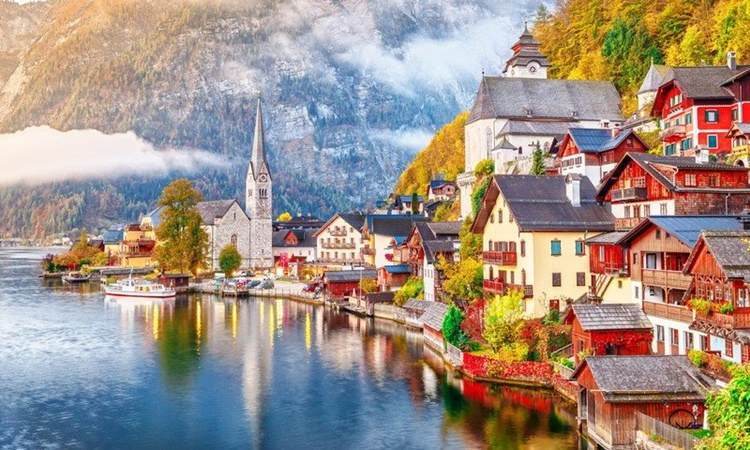
With an ancient and romantic beauty mixed with modernity, Germany is the place that always attracts the most tourists and in the festive seasons.
7. Religion
The two main religions in Germany are Christianity and Judaism. Islam only appeared and spread in Germany after World War II. The majority of the German population is Christian: 32.0% Protestant (North and East Germany), 31.7% Roman Catholic (Western and Southern Germany), 1.14% Christian official. About 27% of Germans have no religion at all, most of them live in the North, especially in areas belonging to the former East Germany. The rest follow other religions.
8. Holidays

Most German holidays are rooted in church holidays like Christmas and Easter. While Independence Day and May 1 are clearly defined in federal law as national holidays, the rest of the holidays are determined by each state's own laws. For example, while people in Bavaria are on holiday, people living in Berlin still have to go to work as usual.
9. Politics
The capital and seat of government of the federal republic of Germany is Berlin. According to article 20 of the German constitution, the Federal Republic of Germany is a democratic, social and cooperative country. Germany has a total of 16 states, some of which are formed by different administrative regions. The country is governed by the constitution (Grundgesetz). While the head of state is the president whose job it is to represent the country, the prime minister is the one who runs the country. The Prime Minister is the person who has the power to decide the political leadership.

Germany is a federation, which means that the political apparatus of Germany is divided into two levels: the federal level, which represents the country in terms of foreign affairs, and the state level of individual states. Each level has its own administrative apparatus: executive (executive), legislative (legislative) and judicial (judicial).
Federal laws are enacted by the federal parliament (Bundestag) together with the federal national assembly (Bundesrat). In the event that a two-thirds majority of both bodies approves, the new constitution is allowed to be changed. Laws at the state level are decided by the state parliament (Landestag).
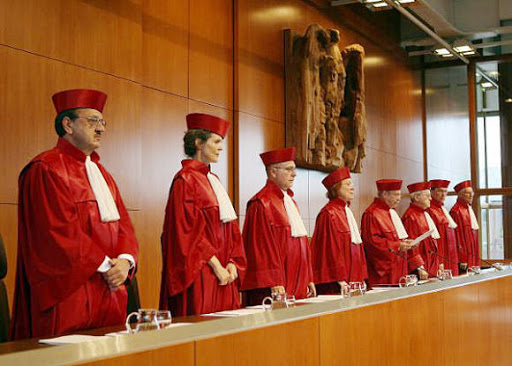
While the federal executive is formed by the federal government under the leadership of the prime minister, the deputy ministers have the power to issue decrees at the state level. Administrative agencies at the federal and state levels are run by ministers.
The federal constitutional court is charged with monitoring and evaluating the constitutional compliance of other state agencies. The Supreme Court of Germany is located in Karlsruhe. Most cases are decided by state courts, the federal constitutional court being the only place of finality to examine and review decisions of state courts.









